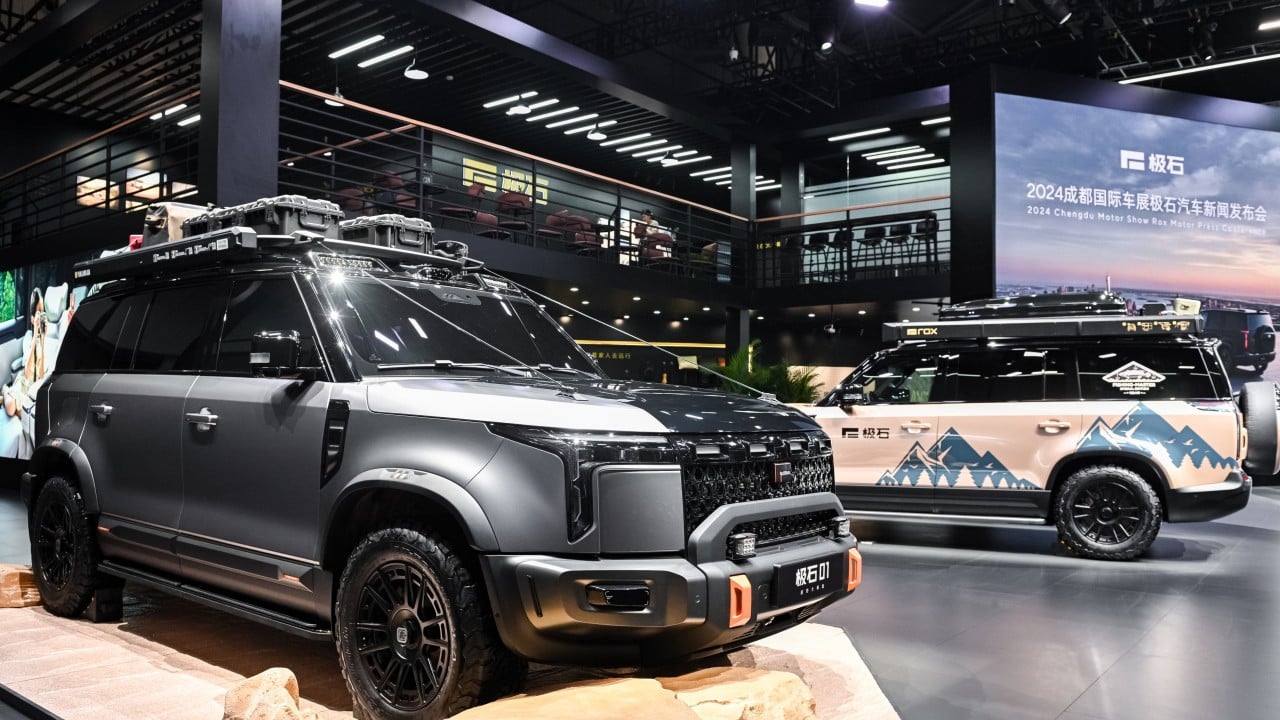China’s US$376 billion electric vehicle (EV) market is attracting new entrants from an array of investors, including a maker of vacuum cleaners and hair dryers. In an industry ridden with losses and failures, that optimism is intriguing.
Advertisement
Dreame, whose products compete with foreign brands like Dyson and Philips, has recruited a team to develop and launch a hybrid EV model after 2026, according to a local media report last month. Based in Suzhou in eastern Jiangsu province, the firm also aims to export to Europe, the report said.
Rox Motor is also thinking big after launching its Rox 01 sport-utility vehicle (SUV) last year. The car maker has signed deals to distribute and sell its hybrid SUV called Rox 01 – its only EV model so far – in Kazakhstan, Qatar, Kuwait, Azerbaijan, Philippines and Egypt.
China’s domestic EV market is the world’s biggest, is projected to stagnate over the next two years in terms of industry-wide revenue. Big guns including BYD, Geely Auto, Xpeng and Li Auto have delivered more than 10 million units to customers this year, while more than a dozen among 100-odd players have crashed and burned since the first of 25 million EVs hit the road in 1993.
Car dealers nationwide have lost nearly US$20 billion fighting overcapacity and a price war.
“It’s an inevitable trend in the industry, we need to foster a new growth driver,” said Yuan Zhijun, chairman of Wuling Motors, which has a three-way venture with General Motor and SAIC Motor making a two-seater mini EV called Hongguang. “We have reached a consensus to transition to EVs.”


